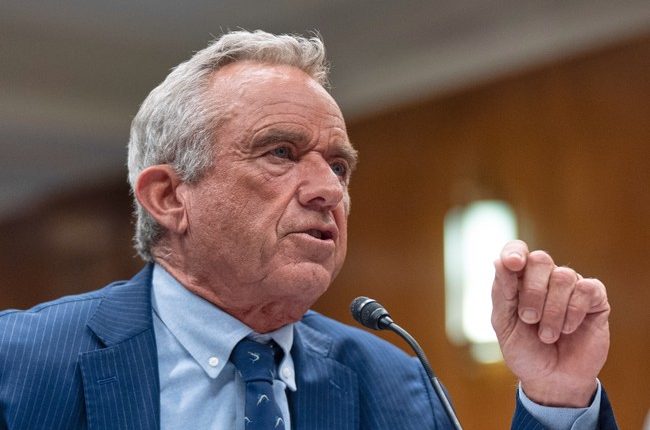Share this @internewscast.com

On Monday, Health and Human Services (HHS) Secretary Robert Kennedy, along with Dr. Mehmet Oz, the Administrator for Centers for Medicare & Medicaid Services (CMS), held a press conference committing to streamline the authorization processes for Medicare, Medicaid, the Health Insurance Marketplace, and commercial plans that serve the majority of Americans.
The HHS website press release announced,
Basically, every major health insurer in the United States. This matters.
“I want to thank the insurance companies for making these commitments today. Americans should not have to bargain with their insurer to receive the care they require,” said Secretary Kennedy. “Putting patients and their doctors in opposition to large corporations wasn’t beneficial for anyone. We are actively collaborating with the industry to simplify obtaining prior authorization for routine services such as diagnostic imaging, physical therapy, and outpatient surgery.”
For those fortunate enough to have never experienced the hassle of needing a pre-authorization or a physician referral for a screening or further diagnosis, you are indeed lucky. A relative was hospitalized with a serious, though not catastrophic, condition. He was discharged after seven days due to that being the maximum duration his insurance provider would cover. Since he needed to consult his primary care physician before seeing a specialist, he endured an additional week post-hospitalization. He eventually met with his PCP and secured a specialist referral, but with approvals, it took another two weeks before he was able to see that specialist. Multiply that by several conditions, numerous practitioners, and even longer wait times, and you magnify the stress and worsen health conditions because of this convoluted insurance process.
“These commitments represent a step in the right direction toward restoring trust, easing burdens on providers, and helping patients receive timely, evidence-based care,” said Administrator Oz. “We applaud these voluntary actions by the private sector, which is how these types of issues should be solved. CMS will be evaluating progress and driving accountability toward our shared goals, as we continue to champion solutions that put patients first.”
And this is only one aspect of how the insurance authorization system has made patients’ lives miserable. With the new changes outlined, the major insurers have committed to:
- Standardize electronic prior authorization submissions using Fast Healthcare Interoperability Resources (FHIR®)-based application programming interfaces.
- Reduce the volume of medical services subject to prior authorization by January 1, 2026.
- Honor existing authorizations during insurance transitions to ensure continuity of care.
- Enhance transparency and communication around authorization decisions and appeals.
- Expand real-time responses to minimize delays in care with real-time approvals for most requests by 2027.
- Ensure medical professionals review all clinical denials.
Despite making noises in the past to reform the system, the major providers appear more invested in the overhaul process this time around. One reason could well be that it has become a matter of life and death for them. The December 2024 murder of UnitedHealthcare CEO Brian Thompson in New York was purportedly because the alleged killer, Luigi Mangione, was denied a procedure that would have improved his quality of life. With 40 percent of Gen Z supporting Mangione, saying that his actions were justified under the circumstances, the insurance provider CEOs are making very public moves to ensure Americans see their commitment to change, and that they will do what is within their power to see it done.

















